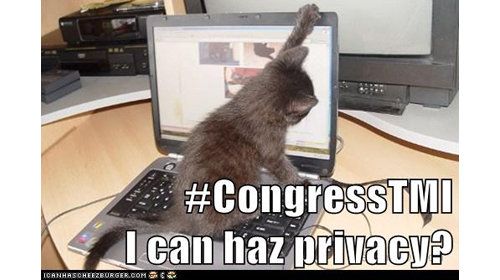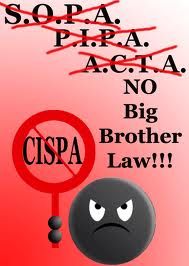The Authorization to Use Military Force is a joint resolution passed by the United States Congress on September 14, 2001, authorizing the use of United States Armed Forces against those responsible for the attacks on September 11, 2001. During a hearing before the Senate Armed Services Committee, Pentagon officials testified that the authorization would be needed for another 10 to 20 years and could be used anywhere from “Boston to FATA (Pakistan’s federally administered tribal areas).” According to the interpretation of these officials this could be done under the current AUMF without any further authorization from Congress. Those claims elicited disbelief, even from war hawk Sen. John McCain (R-AZ) who said, “For you to come here and say we don’t need to change it or revise or update it, I think is, well, disturbing.”
Indeed, but disturbing is an understatement, but none of the Senators suggested that the powers under the AUMF be dialed back.
Testifying before the committee on May 16 were Assistant Defense Secretary Michael Sheehan; Robert Taylor, the acting general counsel for the Department of Defense; Brig. Gen. Richard Gross, Legal Counsel, Chairman of the Joint Chiefs of Staff; and Gen. Michael Nagata, Deputy Director for Special Operations/Counterterrorism, J-37, Joint Staff
This excerpt of the hearing from Democracy Now includes Sen. Lindsey Graham (R-SC); Robert Taylor, acting general counsel, Department of Defense; Michael Sheehan, assistant secretary of defense for special operations/low-intensity conflict, Department of Defense; and Sen. Angus King (I-Maine).
Transcript is here
From Glenn Greenwald at the Guardian on Pres. Obama’s permanent war on terror:
That the Obama administration is now repeatedly declaring that the “war on terror” will last at least another decade (or two) is vastly more significant than all three of this week’s big media controversies (Benghazi, IRS, and AP/DOJ) combined. The military historian Andrew Bacevich has spent years warning that US policy planners have adopted an explicit doctrine of “endless war”. Obama officials, despite repeatedly boasting that they have delivered permanently crippling blows to al-Qaida, are now, as clearly as the English language permits, openly declaring this to be so.
It is hard to resist the conclusion that this war has no purpose other than its own eternal perpetuation. This war is not a means to any end but rather is the end in itself. Not only is it the end itself, but it is also its own fuel: it is precisely this endless war – justified in the name of stopping the threat of terrorism – that is the single greatest cause of that threat. [..]
The genius of America’s endless war machine is that, learning from the unplesantness of the Vietnam war protests, it has rendered the costs of war largely invisible. That is accomplished by heaping all of the fighting burden on a tiny and mostly economically marginalized faction of the population, by using sterile, mechanized instruments to deliver the violence, and by suppressing any real discussion in establishment media circles of America’s innocent victims and the worldwide anti-American rage that generates.
Though rarely visible, the costs are nonetheless gargantuan. Just in financial terms, as Americans are told they must sacrifice Social Security and Medicare benefits and place their children in a crumbling educational system, the Pentagon remains the world’s largest employer and continues to militarily outspend the rest of the world by a significant margin. The mythology of the Reagan presidency is that he induced the collapse of the Soviet Union by luring it into unsustainable military spending and wars: should there come a point when we think about applying that lesson to ourselves?
Then there are the threats to Americans’ security. Having their government spend decades proudly touting itself as “A Nation at War” and bringing horrific violence to the world is certain to prompt more and more people to want to attack Americans, as the US government itself claims took place just recently in Boston (and as clearly took place multiple other times over the last several years). [..]
The Obama administration already claims the power to wage endless and boundless war, in virtually total secrecy, and without a single meaningful check or constraint. No institution with any power disputes this. To the contrary, the only ones which exert real influence – Congress, the courts, the establishment media, the plutocratic class – clearly favor its continuation and only think about how further to enable it. That will continue unless and until Americans begin to realize just what a mammoth price they’re paying for this ongoing splurge of war spending and endless aggression.
Harvard Law professor and former Bush DOJ official Jack Goldsmith, who also testified, wrote this at the end of his brief summery of the hearing:
My general impression of the hearing was that (1) DOD officials were very uncomfortable talking about how they interpret the AUMF and what groups are covered by it, (2) those officials interpret the AUMF very broadly, and (3) several members of the Committee were surprised by the breadth of DOD’s interpretation of the AUMF. I came away thinking that Congress cannot address the problem of extra-AUMF threats until it gets a handle on how the AUMF is being interpreted and deployed. I also came away thinking more than ever that Congress needs to re-engage in a serious way about the nature and scope of the conflict against al Qaeda and affiliates. Amazingly, there is a very large question even in the Armed Services Committee about who the United States is at war against and where, and how those determinations are made.
The solutions are for Congress to repeal the AUMF or for the Supreme Court to declare it unconstitutional. Don’t hold your breath for either of those things happening.

 The
The  The controversial data sharing bill,
The controversial data sharing bill,
Recent Comments